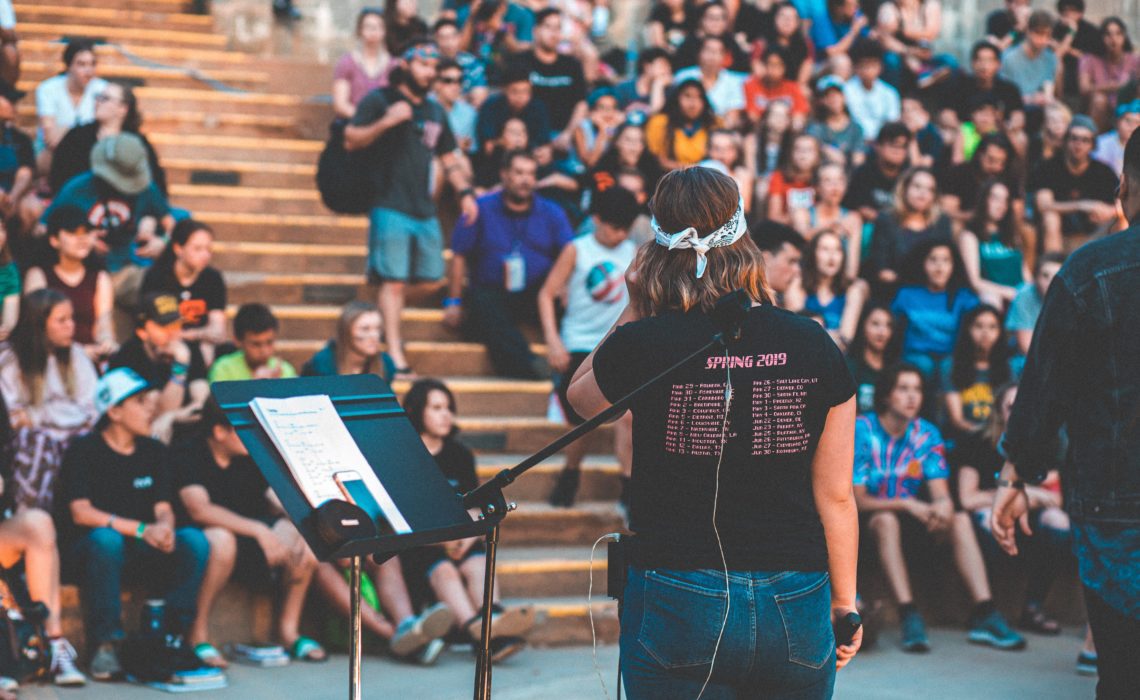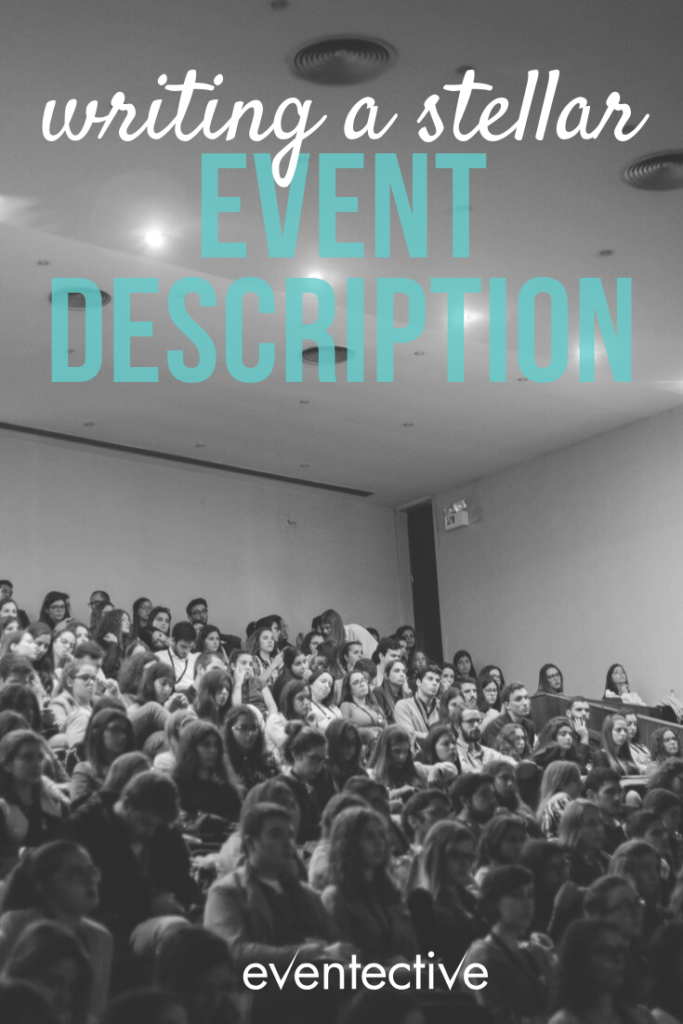
It’s the age-old event planning conundrum: How do you get people to attend your event? Unfortunately, there isn’t a master checklist for creating the perfect event. But there are some important pieces that give your event an advantage. Your event description is one of those pieces. It gives your audience the information they want to know, in a way that they can understand. (Of course, your event description should have proper grammar and spelling; typos can damage your brand.)
Someone reading your event description already has at least a little interest in your event. They were most likely redirected from an outside source—like email or social media advertisement—and now they want to know, “Is it worth going?” Your event description will answer that question. If that seems like a lot of pressure, don’t worry! We’ll help you figure out what information to include in your event description, so you and your audience both benefit.
Know Your Audience

Who do you want coming to your event? Demographics could include age, industry, location, interests—or any combination of all those and more. Say you’re planning a social hour for young professionals nearby. Their age and location are two important markers. Industry might be a close third if your event is in a niche market. Because every audience has different needs and interests, ask yourself these three questions to really get to know them.
What do they care about?
This can be on a large scale—like attaining a dream job. But it can also include micro-concerns. Young professionals might have the ultimate goal to obtain their dream job, or reach a certain income status. Your networking event can’t promise either of those—but it can help them get there.
Bonus Tip: A post-event survey is a great way to learn more about your audience’s concerns and values.
At your event, they can build valuable connections, practice marketing their individual brand, and even commiserate with fellow workers. Establish what your audience values, and write about it in your event description.

What are their obstacles?
Address possible concerns in your event description, so your audience doesn’t have an excuse to skip. For the young professional audience, cost is a big factor. They know you have to spend money to make money—but they don’t have a lot of money to spend. If your event is free, call attention to that early on in your event description. If your event is ticketed—don’t worry just yet. Events with a price tag have a perceived value, because there’s some investment involved. But make sure to list everything that comes with the ticket, so your audience can see just how worthwhile your event is.
Know Your Competition
Your event description doesn’t just have to stand out to your audience—it also has to stand out among your competitors. All the other businesses on the block are hosting free socials this month, too. Why should they choose your networking event? This could be tied to your audience’s obstacles, like cost, if your event is cheaper (or free!). Or your event could be more in-line with their priorities, like an industry-specific mixer. To find out what sets you apart, you’ll have to do a little recon work.
What is everyone else doing?
Before writing your own event description, read some from your competition. This will give you an idea of what works (or doesn’t work!). To quote someone probably not famous: Learn from the mistakes of others. As event planners, we sometimes forget that our audience doesn’t know anything about our event. And as a result, we miss important details in our event description. Reading competitor descriptions lets you go undercover as an audience member. Take note of the descriptions that left you with more questions, and mimic the ones that gave you all the information.

What is (or isn’t) working?
Outside of the event description, where has your competition fallen short? Scout out their social media accounts for audience comments. We all know negative feedback isn’t all bad. But if there’s a consistent point of contention (or piece of praise!), it’s worth noting. Maybe the young professionals really enjoyed their food selection, or perhaps there wasn’t enough parking during the event. Work those details into your event description, so your audience knows their needs will be met.
Know Your Event
We established that you’ve been planning for months—you know your event inside and out. But do you know it well enough to communicate with your attendees? Once you’ve established the wants and needs of your target audience, and the wins and losses of your competitors, you need to figure out where your event fits. What edge to you have, and how can you communicate all that in an event description?
What is important?
Pretend that your event description is an online dating profile—you only have a few seconds to capture your reader’s attention before they swipe. Most platforms have a character limit, but don’t feel obligated to use it all. Use what you need, but keep it on the shorter side.
Bonus Tip: Put all the good stuff at the beginning.
If your online event platform shows a preview of a whole description, make sure that preview is full of important keywords (like “free” or “shuttle service provided”). This will entice your audience to keep reading.

What questions will they have?
Admittedly, an event description can’t answer every single attendee question—it’s not designed to. Somewhere else on your website (maybe even linked in your event description) post an FAQ section. This will cover what exactly is included with a ticket, parking information or dress code, and how to cancel or modify any reservations.
Conclusion
In order to craft a convincing event description, there are a few questions you have to ask yourself. And a little leg work you need to do, too! But the end result will be an engaging description that speaks directly to your audience, and stands out among your competition. By addressing their needs, and living up to your promises, you’ll build lasting relationships with your audience.
How will your event stand out among the others?

